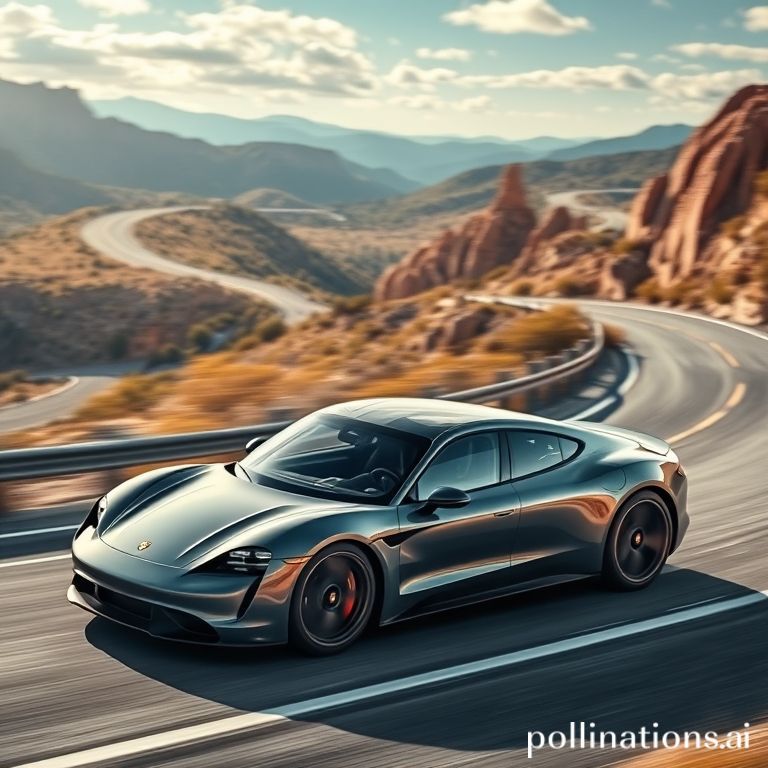
Porsche, a renowned luxury automaker, recently experienced a significant drop in its stock value, plummeting over 7% in a single day. This sharp decline was triggered by the company's unexpected announcement regarding considerable delays in its planned electric vehicle (EV) rollout. The news has not only sent ripples through the investor community but also prompted broader concerns about Porsche's financial outlook for 2025 and its strategic positioning within the fiercely competitive and rapidly evolving global EV market. This development highlights the complex challenges even well-established luxury brands face when navigating the transition towards sustainable mobility, impacting both market confidence and future profitability projections.
Strategic Shift Amidst Market Challenges
The core reason behind Porsche's strategic pivot is a confluence of weakening demand for electric vehicles and mounting economic pressures observed across key international markets, particularly in dynamic regions like China and the United States. These market realities have compelled the company to re-evaluate its aggressive EV transition timeline. Initially, Porsche had set ambitious targets for its electric lineup, aiming to capture a significant share of the premium EV segment. However, the current economic climate, characterized by factors such as fluctuating consumer confidence, rising interest rates, and geopolitical uncertainties, has led to a deceleration in the adoption rate of high-end electric cars. This shift in market dynamics directly challenges previous growth forecasts and necessitates a more cautious, adaptive approach from manufacturers.
Financial Repercussions and Revised Outlook
As a direct consequence of these delays and revised market expectations, Porsche has significantly adjusted its financial guidance for the upcoming year. The projected profit margin for 2025 has been revised downwards dramatically, from an optimistic target of up to 7% to a more conservative range of 2% or even less. This substantial reduction implies a potential decrease in operating profit by an estimated $2.1 billion this year, according to analyses from industry reports. Such a forecast underscores the considerable financial impact that changes in production timelines and market demand can have on a global automotive giant. Investors reacted swiftly, reflecting concerns about the immediate profitability and the long-term strategic direction of the company in a capital-intensive industry.
Evolution of Product Strategy
In response to these evolving market conditions, Porsche has announced a notable adjustment to its future product launch strategy. Upcoming electric models, which include an entirely new line of highly anticipated SUVs, will now be introduced with conventional combustion engines and plug-in hybrid options alongside, or even prior to, their full-electric counterparts. This decision signals a more flexible approach, ensuring that Porsche can cater to a broader spectrum of customer preferences and market demands as the transition to electric vehicles unfolds. Furthermore, existing popular models such as the Panamera and Cayenne, which have traditionally been strong sellers, will continue to be offered with non-electric powertrain options for an extended period, well into the 2030s. This indicates a commitment to maximizing sales from proven technologies while carefully phasing in new electric offerings.
Wider Impact on Volkswagen Group
Given Porsche's integral role within the Volkswagen Group, its strategic recalibrations inevitably sent reverberations through the parent company. Volkswagen's shares also experienced a significant decline, falling by more than 7% on the same trading day that Porsche made its announcement. In alignment with Porsche's revised outlook, Volkswagen has similarly lowered its overall profit margin forecast for the group, adjusting it from a previous estimate of 4-5% down to a more modest 2-3%. These adjustments collectively are anticipated to reduce Volkswagen's operating profit by up to an alarming €5.1 billion ($5.98 billion) this year. This illustrates the interconnectedness of major automotive conglomerates and how a single brand's challenges can ripple across the entire corporate structure, affecting group-wide financial health and investor confidence.
Challenges for European Automakers
Porsche's decision is not an isolated incident but rather indicative of broader challenges currently confronting European automakers in the dynamic global EV market. These venerable manufacturers are finding themselves in intense competition with agile and rapidly expanding Chinese rivals, such as BYD and XPeng. These Asian counterparts have aggressively entered the market, often engaging in fierce price wars within their domestic EV sector, which then extends its competitive pressure globally. Compounding this challenge is a general slowing of the global economy, which is dampening consumer demand, particularly for luxury cars, making the capital-intensive transition to electric mobility even more precarious. European brands are thus forced to meticulously balance innovation, cost-efficiency, and market demand while navigating a rapidly shifting technological and economic landscape.
Navigating the Future Landscape
As Porsche meticulously navigates through these complex challenges, the company faces pivotal decisions that will profoundly shape its future product lineup and overall strategic direction. The measured delay in its aggressive EV rollout and the renewed emphasis on hybrid and combustion engine models signify a strategic recalibration designed to mitigate risks in an uncertain market. However, these adjustments could also impact Porsche's long-term competitive positioning within the evolving automotive landscape, particularly as global emissions regulations tighten and consumer preferences continue to trend towards electrification. Investors, industry analysts, and enthusiasts alike will be closely observing the company's next strategic moves, keen to assess its adaptability and resilience in maintaining its prestigious brand value and market leadership amidst unprecedented industry transformation. The ability to innovate while prudently managing market risks will be paramount to its sustained success.
Conclusion
In summary, Porsche's strategic decision to delay its full-scale EV rollout underscores the multifaceted complexities and significant challenges that traditional automakers, even those in the luxury segment, encounter during the monumental transition to electric mobility. This period demands a delicate balance between ambitious technological advancements, market responsiveness, and financial prudence. As Porsche continues to navigate these formidable hurdles, its capacity for strategic adaptation, continuous innovation, and astute market analysis will be absolutely crucial in solidifying and enhancing its esteemed position within the intensely competitive global automotive industry. The coming years will undeniably define its trajectory in this transformative era.
